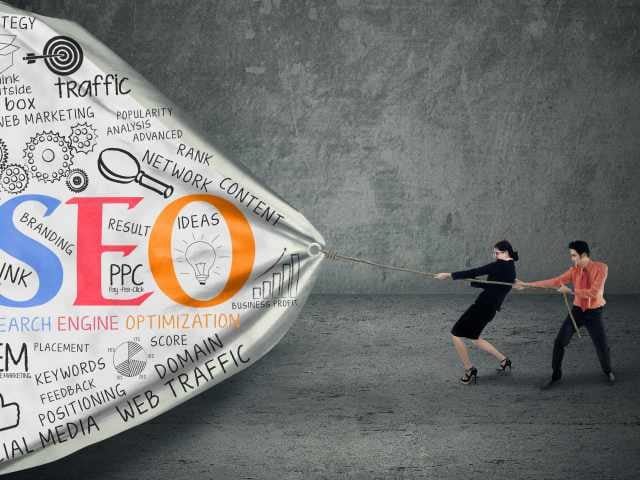In today’s fast-paced digital landscape, Artificial Intelligence (AI) has emerged as a transformative force, reshaping how businesses approach digital marketing. AI’s ability to analyze vast amounts of data, predict consumer behavior, and personalize user experiences has made it an indispensable tool for marketers. This blog post delves into the pivotal role AI plays in modern digital marketing strategies, highlighting its impact on customer engagement, data analysis, and campaign optimization.
1. Personalization at Scale
One of the most significant contributions of AI to digital marketing is its ability to deliver personalized experiences at scale. In the past, personalization was limited to basic demographic information, but AI takes it a step further. By analyzing user behavior, preferences, and interactions, AI algorithms can create highly tailored content and recommendations.
For instance, AI-powered recommendation engines, like those used by Amazon and Netflix, suggest products or content based on users’ past behaviors and preferences. This level of personalization not only enhances user experience but also increases the likelihood of conversions and customer retention. Marketers can leverage AI to craft individualized email campaigns, dynamic website content, and targeted advertisements that resonate with each user.
2. Enhanced Data Analysis and Insights
Data is the backbone of modern marketing, and AI is revolutionizing how businesses analyze and interpret it. Traditional data analysis methods can be time-consuming and limited in scope, but AI algorithms can process vast amounts of data quickly and efficiently. This allows marketers to gain deeper insights into customer behavior, market trends, and campaign performance.
Machine learning models can identify patterns and correlations within data that might go unnoticed by human analysts. For example, AI can segment audiences based on complex criteria, predict future behavior, and identify emerging trends. This enables marketers to make data-driven decisions, optimize their strategies, and allocate resources more effectively.
3. Automated Content Creation
Content is king in digital marketing, but creating high-quality, engaging content consistently can be a challenge. AI offers a solution by automating various aspects of content creation. Natural Language Processing (NLP) algorithms can generate written content, such as product descriptions, blog posts, and social media updates, with a high degree of accuracy.
AI-powered tools can also assist in content curation by recommending relevant articles, images, and videos based on user interests. While AI-generated content might not yet match the creativity of human writers, it can significantly speed up the content creation process and provide a foundation for further refinement.
4. Chatbots and Customer Service
AI-driven chatbots have revolutionized customer service by providing instant support and assistance. These virtual assistants can handle a wide range of customer inquiries, from answering frequently asked questions to processing transactions and resolving issues.
Chatbots enhance the customer experience by offering 24/7 support and reducing response times. They also gather valuable data on customer interactions, which can be analyzed to improve service quality and identify common pain points. By integrating chatbots into digital marketing strategies, businesses can ensure that customers receive timely and relevant assistance.
5. Predictive Analytics and Forecasting
Predictive analytics is another area where AI excels, enabling marketers to forecast future trends and behaviors with greater accuracy. By analyzing historical data and applying machine learning algorithms, AI can predict customer behavior, market shifts, and campaign outcomes.
For example, AI can forecast which products are likely to be popular in the coming months, allowing businesses to adjust their inventory and marketing strategies accordingly. Similarly, predictive analytics can help identify high-value customers and target them with tailored offers and incentives. This proactive approach enhances marketing effectiveness and drives better results.
6. Ad Targeting and Optimization
AI has transformed digital advertising by enabling more precise ad targeting and optimization. Traditional ad targeting methods often rely on broad demographic categories, but AI can analyze user behavior and preferences to deliver ads that are highly relevant to each individual.
Programmatic advertising platforms use AI to automate the ad buying process, optimizing bids and placements in real-time. This ensures that ads are shown to the right audience at the right time, maximizing the return on investment. AI also continuously analyzes ad performance, allowing marketers to make data-driven adjustments and improve campaign effectiveness.
7. Voice Search and Conversational Marketing
With the rise of voice-activated devices and virtual assistants, voice search has become an important consideration for digital marketers. AI-powered voice recognition technology enables users to conduct searches and interact with brands using natural language.
Optimizing for voice search requires a shift in strategy, focusing on conversational keywords and long-tail phrases. AI can help identify relevant keywords and optimize content to improve voice search visibility. Additionally, conversational marketing techniques, such as interactive voice responses and voice-enabled chatbots, can enhance user engagement and drive conversions.

8. Ethical Considerations and Challenges
While AI offers numerous benefits, it also presents ethical considerations and challenges. Issues such as data privacy, algorithmic bias, and transparency need to be addressed to ensure that AI is used responsibly in digital marketing.
Marketers must be transparent about data collection practices and ensure that AI algorithms are designed to avoid bias and discrimination. Additionally, businesses should prioritize data security and comply with regulations to protect user privacy. By addressing these challenges, marketers can build trust with their audience and use AI ethically.
Conclusion
AI has fundamentally changed the landscape of digital marketing, offering unprecedented opportunities for personalization, data analysis, and optimization. By leveraging AI-driven tools and techniques, businesses can enhance customer experiences, improve campaign performance, and drive better results. However, it is essential to navigate the ethical considerations and challenges associated with AI to ensure responsible and effective use.
As AI technology continues to evolve, its role in digital marketing will likely become even more integral. Marketers who embrace AI and stay abreast of the latest developments will be well-positioned to thrive in the dynamic digital environment. The future of digital marketing is undoubtedly intertwined with AI, and those who harness its power effectively will lead the way in shaping the future of the industry. Where to buy forum backlinks? Check out their page to learn more.





